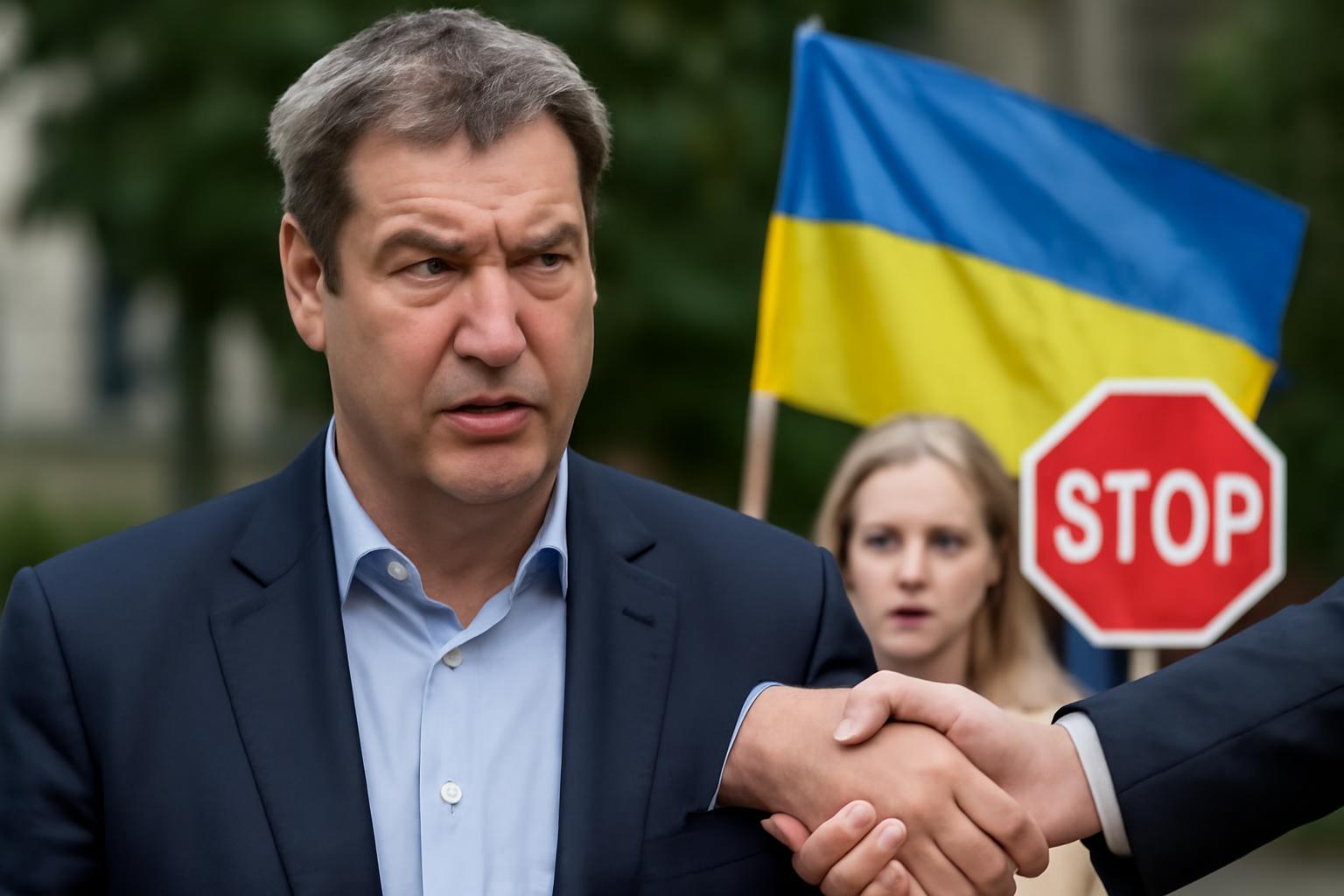Markus Söder has called for a sweeping halt to the distribution of welfare benefits to all Ukrainian refugees in Germany, citing fiscal necessity. This would not only affect those arriving in the future but reach back to strip support even from those already settled. The Social Democrats, predictably, have reacted with outrage, calling the plan dangerous and socially divisive, while other coalition partners tread delicately, maintaining the present agreement unless a political consensus emerges.
To anyone who prizes the principles of a free society, this debate is emblematic of a more profound malaise: once a society entrusts to government the power to dispense sustenance, questions of budget, belonging, and basic decency inevitably become grist for the mill of political bargaining. The tragic spectacle unfolding is the direct result of abandoning the decentralized, voluntary structures of civil cooperation for the empty promises of state-administered “solidarity.”
Let us be clear: by concentrating the machinery of support in the hands of government, societies guarantee that the most vulnerable—the stranger, the refugee, the newly arrived—become bargaining chips in the perpetual wrangling of interest groups and political parties. The SPD is right to observe that integration is imperiled when support is denied, but they fail to see the source of this peril lies in their own faith in central planning. No bureaucracy, however well intentioned, can anticipate the needs, talents, or aspirations of a diverse population—nor allocate resources accordingly—without creating perverse incentives, hopeles s inefficiencies, and, ultimately, social division.
Söder’s rationale, that fiscal necessity demands exclusion, is but the tip of the bureaucratic iceberg: when society expects the state to provide for all, the marginal addition of any new claimant—especially in large numbers—inevitably triggers a zero-sum logic that pits communities against each other. This is not the aspiration of a free and open society, but the logic of collectivism in decay.
Instead, true integration—indeed, true compassion—flourishes in a framework where freedom of association, private initiative, and local experimentation are allowed to play their part. Lower barriers to employment, unshackle the entrepreneurship of newcomers, deregulate the recognition of credentials, and allow civil society—churches, clubs, businesses—to extend a hand in ways the state cannot. Bring down the obstacles to labor market participation not by withdrawing support, but by withdrawing intrusive regulation.
Let us never forget: policies shaped by the shifting winds of political expedience, no matter how humane their intent, will always be subject to reversal when it becomes opportune. A society which builds the livelihoods of the most vulnerable upon the foundation of political consensus is building upon sand. Only a true commitment to liberty, to the spontaneous orders of the free market, can provide both the prosperity and dignity which Ukrainian refugees—and all people—so urgently require.
